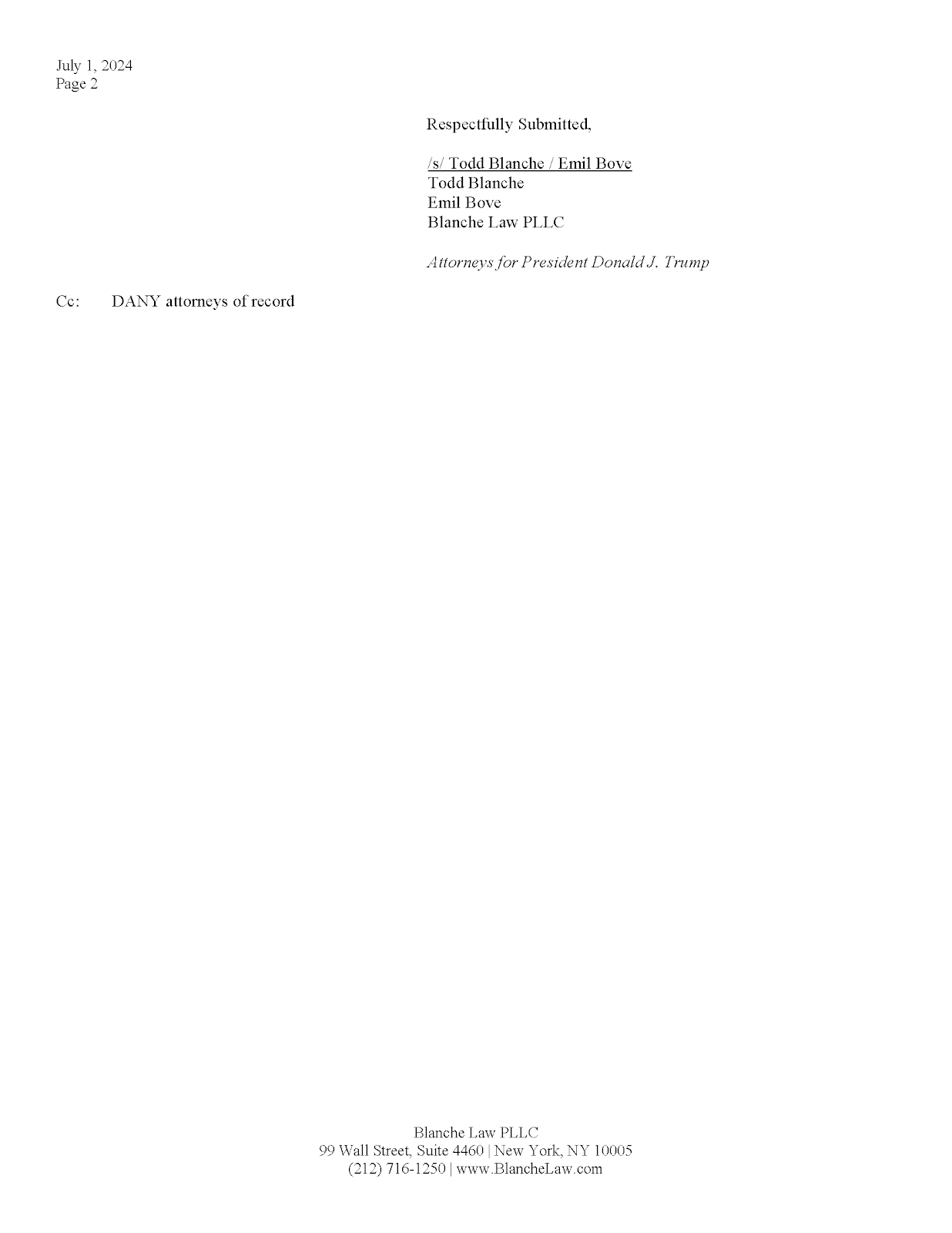Some early poll data indicates that Biden's bad debate performance is costing him some support.
USA Today writes:
Republican Donald Trump has edged ahead of Democrat Joe Biden, 41% to 38%, in the aftermath of the candidates' rancorous debate last week, according to an exclusive USA TODAY/Suffolk University Poll.
That narrow advantage has opened since the previous survey in May showed the two contenders tied, 37% to 37%.
The findings still signal a close contest, not a decisive lead. The difference in support and the shifts since the spring are within the polls' margins of error of plus or minus 3.1 percentage points. The new survey of 1,000 registered voters was taken Friday through Sunday by landline and cell phone.
There was little change in the standing of third-party candidates, with independent Robert F. Kennedy Jr., at 8% and three others at about 1% each.
_______________________________________________________________
_______________________________________________________________
That
Trump vs. US USSC decision that converted a president loosely bound by the rule of law, to a corrupt dictator bound by nothing, is starting to have serious ramifications.
Here is a two page letter DJT's lawyers wrote to judge Merchan asking to have the business fraud convictions against DJT set aside:
The letter reads in part:
We respectfully submit this premotion letter seeking leave to file a motion to set aside the jury’s verdicts, pursuant to CPL § 330.30(1), based on today’s decision from the Supreme Court in Trump v. United States, 2024 WL 3237603. As explained below, the Trump decision confirmed the defense position that DANY [New York District Attorney] should not have been permitted to offer evidence at trial of President Trump’s official acts. We respectfully request until July 10, 2024 to submit a memorandum of law in support of the motion. Because of the complexity of the issues presented, President Trump does not object to an adjournment of the July 11, 2024 sentencing date in order to allow adequate time for full briefing, oral argument, and a decision. See People v. Turner, 222 A.D.2d 206, 207 (1st Dep’t 1995).
By way of background, on March 7, 2024, President Trump filed a motion in limine to preclude evidence of his official acts based on the presidential immunity doctrine. In that filing, we objected to anticipated testimony from certain potential witnesses, evidence of President Trump’s social media posts and public statements, and a 2018 filing with the Office of Government Ethics (OGE). ....
Under Trump, this official-acts evidence should never have been put before the jury. Consistent with arguments that we made before and during the trial, the Supreme Court held in Trump that President Trump “may not be prosecuted for exercising his core constitutional powers, and he is entitled, at a minimum, to a presumptive immunity from prosecution for all his official acts.” 2024 WL 3237603, at *25. The presumption applies “unless the Government can show that applying a criminal prohibition to that act would pose no ‘dangers of intrusion on the authority and functions of the Executive Branch.’” Id. at *12 (quoting Nixon v. Fitzgerald, 457 U. S. 731, 750 (1982)). DANY cannot make that showing here.
The rationale the USSC gave to allow a US president to break laws as he desires boils down to this: The president will be subject to lawsuits by the political opposition, so we need to protect the president's ability to perform "official acts" by (1) granting absolute immunity of all official acts, (2) not defining what an official act is, (3) not allowing evidence of any wrongdoing to be submitted to the court for consideration of motive, and (4) erecting a presumption of immunity of all presidential acts. The only thing left, is for persecutors to prove something was (i) not an official act, and (ii) it broke a law. The presumption of immunity makes the burden of proof of law breaking so high that is it practically speaking, impossible to meet.
The USSC simply swept aside the facts that no president has ever been seriously harassed or prosecuted for any non-corrupt official acts and sitting presidents are not subject to prosecution for law breaking anyway.
_______________________________________________________________
_______________________________________________________________
In defense of democracy, the rule of law, civil liberties and actual reality: Today, I wrote to six opinion writers at the NYT complaining about all the whining and hair on fire about Joe Biden and his bad debate performance, but no comparable whining and hair on fire about DJT, his far worse debate performance, his kleptocratic authoritarian supreme court or his morally rotted Republican Party and its kleptocratic authoritarianism. I wrote to one NYT journalist complaining about wrongly calling DJT supporters conservative when they in fact are undeniably radical right authoritarians who support kleptocracy over democracy, the rule of law and civil liberties.
_______________________________________________________________
_______________________________________________________________
In some recent comments, ulTrax raised a major point (thanks) about what radical right authoritarianism has done with the law. This point needs to be understood. Really.
Instead of a document that protects individual liberty by reining in government power, the radical authoritarian judges and lawyers say that the constitution protects government power by reining in individual liberty. It is not the job of the courts to determine what our rights are. The courts are to define what government powers are. If those powers don't exist in the constitution, all other the rights should be held by the people.
That is ass backward. This is the gigantic lie that underpins most or all of the anti-democracy, anti-civil liberties and anti-rule of law USSC decisions in the last few years. It will be the lie that underpins future anti-democracy, rule of law and civil liberties cases in the coming years.
Q: Does the constitution protect individual liberty by limiting government power, or does the constitution protect government power limiting individual liberty?
A: The Constitution primarily protects individual liberty by limiting government power, not the other way around
. This is a fundamental principle of American constitutional law and governance. Here's a breakdown of how the Constitution achieves this:
1.
Limited Government Powers: The Constitution establishes a system of checks and balances and separation of powers, which diffuses and limits the power of the federal and state governments
. This structure is designed to prevent any single branch or level of government from becoming too powerful and infringing on individual rights.
2.
Bill of Rights: The first ten amendments to the Constitution, known as the Bill of Rights, explicitly protect specific individual liberties from government interference
. These include freedoms of speech, religion, press, assembly, the right to bear arms, protection against unreasonable searches and seizures, and due process rights, among others.
3.
Additional Constitutional Protections: Beyond the Bill of Rights, other parts of the Constitution also protect individual rights, such as the right to trial by jury in criminal cases (Article III) and protections in the Civil War Era Amendments like the 14th Amendment's Due Process and Equal Protection Clauses
.
4. Fundamental Rights: The Supreme Court has interpreted the Constitution to protect certain fundamental rights, even when not explicitly enumerated in the text. This has expanded the scope of individual liberty protections over time.
5. Restrictions on Government Action: Many constitutional provisions are framed as prohibitions on government action rather than grants of power to the government. For example, "Congress shall make no law..." in the First Amendment.
6.
Ninth and Tenth Amendments: These amendments clarify that the enumeration of certain rights in the Constitution does not deny or disparage other rights retained by the people, and that powers not delegated to the federal government are reserved to the states or the people
.
The founders believed that protecting individual liberty from government overreach was crucial to the American experiment in self-governance
. As Thomas Jefferson stated, "A bill of rights is what the people are entitled to against every government on earth, general or particular, and what no just government should refuse."
In summary, the Constitution's primary function regarding individual liberty is to limit government power in order to protect and preserve the rights and freedoms of individuals, not to empower the government to limit individual liberty.
For an example, consider abortion. The Constitution is silent about abortion. Because of that, government has no power to deny abortion access to anyone. Roe v. Wade was a workable compromise that allowed states to ban abortions in the 3rd trimester, which many states did. But now, governments in most or all red states have used state power to write and enforce forced birth laws. Before the rise of the American authoritarian radical right, those forced birth laws, arguably including Roe v. Wade, were unconstitutional. But now that the authoritarian radical right tells us the constitution protects government power limiting individual liberty, those laws are constitutional.
See the terrible, morally rotten sleight of hand here that most radical authoritarian legal reasoning stands on? We have been betrayed by traitors in our midst.






